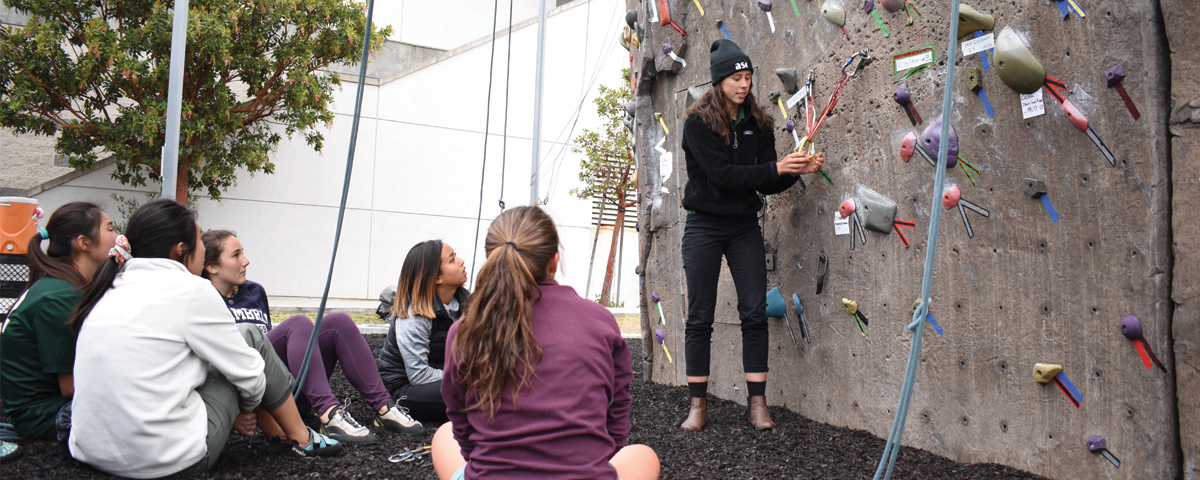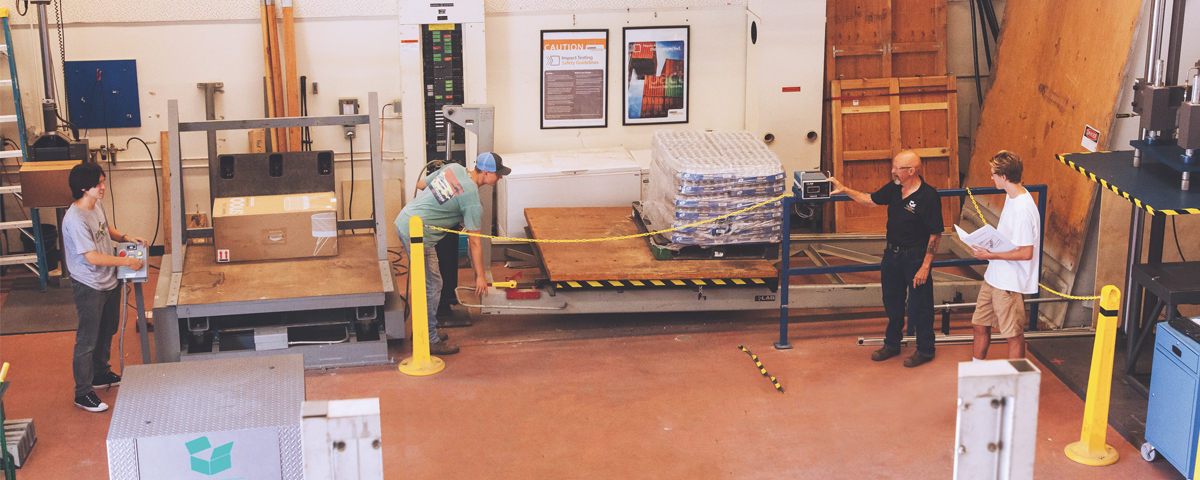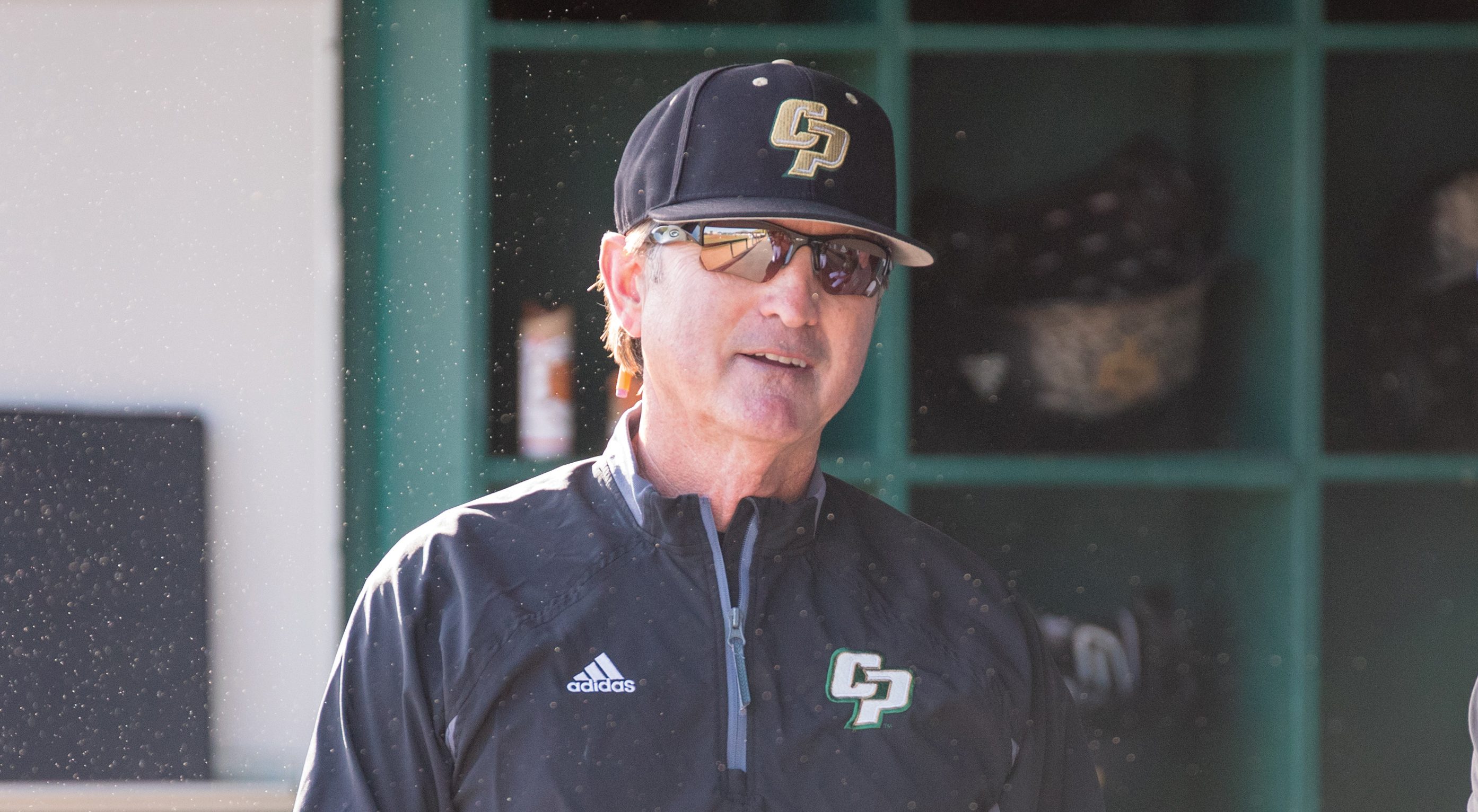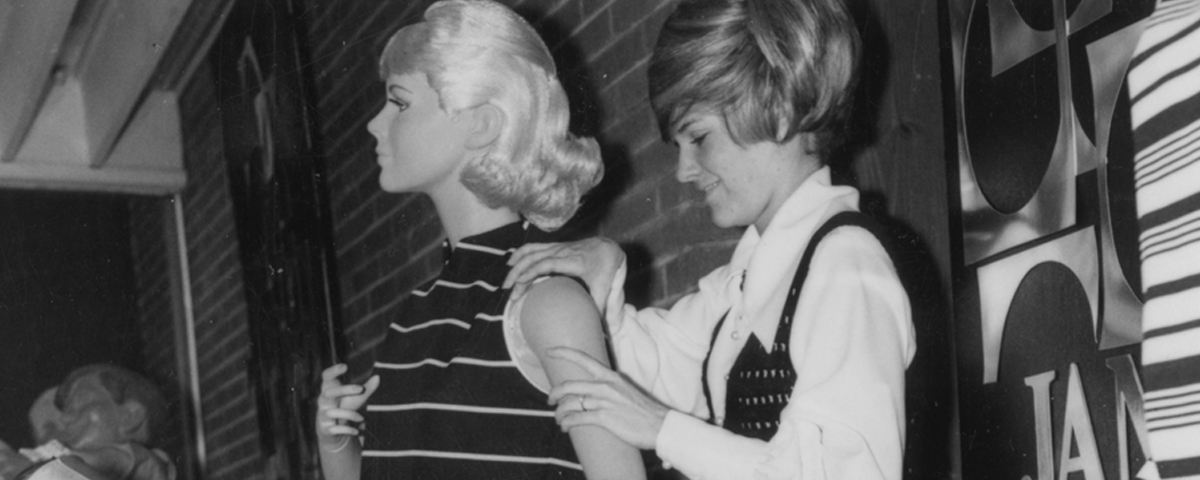About Campus
Women at the Wall
By Alyssa Mavor

Adriana Long wants to be able to share her passion for climbing with other women. “Some of the best memories I have include being up high on some beautiful rock, overlooking a landscape with some of my best friends,” she said.
On Wednesday nights from 6 to 8 p.m., Long, a third-year monitor at the Cal Poly climbing park, hosts Women’s Night, a dedicated time for 20 to 30 mostly female climbers to learn the art and style of rock climbing.
The idea started last December, when Long wrote a proposal to implement a special time for women climbers. All genders are welcome at the session, but establishing a dedicated night for women reduces the testosterone-fueled atmosphere that sometimes permeates rock-climbing culture, Long said.
On a typical day, the bouldering wall and the higher, roped wall are surrounded by climbers testing their strength, balance and flexibility on the rock. Long quickly noticed that the gender ratio was skewed.
“We started Women’s Night to make women feel more comfortable learning to climb,” Long said. “When people first start, it can be really intimidating.”
Long started her climbing journey as a first-year student in college. Though she had enjoyed climbing small rocks and trees as a child, she didn’t experience real rock climbing until she fell in love with the climbing park at Cal Poly. Before long, she was climbing at the wall more days than not, and later joined the park staff as a wall monitor.
“If you show up at the climbing wall, it’s usually 80 percent men,” Long said. “That just isn’t representative of all of the people who want to climb.”
Women’s Night helps to level the playing field of strength and body size and reduce the intimidation factor inherent to climbing, a sport where falling is fundamental, Long said. She and her female co-workers start each session off with a small lesson about climbing knowledge, safety or terminology, so that the new climbers begin to learn the parlance of the sport.
The mood of Women’s Night is less competitive and more relaxed than usual climbing times, Long said. “There’s a lot more support and cheering.”





